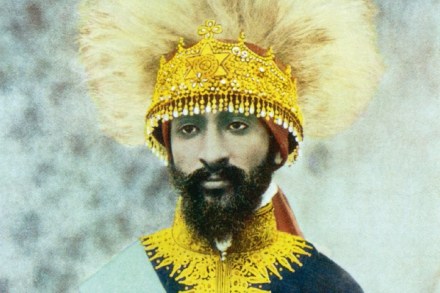King of Kings: The Triumph and Tragedy of Emperor Haile Selassie I of Ethiopia
Great men rarely come smaller than Haile Selassie. In photographs, the golden crowns, pith helmets and grey felt homburgs he often donned can’t conceal the fact that he is the shortest man in the room. It didn’t matter: for the 44 years of his reign — with a five-year interruption engineered by Benito Mussolini’s invading troops — he was effectively lord of all he surveyed. Ethiopia’s current government, established by a former Marxist rebel group, has always harboured mixed feelings towards Tafari Makonnen, as he was baptised. But for his countrymen he looms like a colossus, remembered for dragging his vast empire from feudalism into the modern age, and as




















